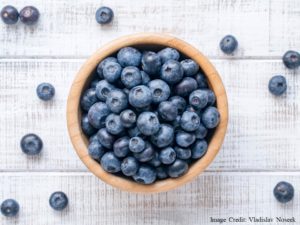
When I talk with teachers about psychology and neuroscience research, I frequently get a question in this shape:
“I’ve heard that X is really good for the brain. Is that really true?”
In this sentence, X might be blueberries. It might be water. It might be nature walks. Perhaps it’s a good night’s sleep, or green tea, or coffee, or merlot ice cream. (I think I made up that last one, but anything’s possible…)
So, should schools start serving blueberries, merlot ice cream, and green tea (and black coffee) to our students? Perhaps with a side of salmon — brain food for sure!
Works (Almost) Every Time
Here is a completely unsurprising research finding: the brain is a part of the body.
The brain is, in fact, physically attached to the body.
For this reason, everything that is good for the body is good for the brain. (Because, again, the brain is a part of the body.)
Is sleep good for the brain? Well, it’s good for the body, so; yes.
How about water? Yup.
Fruits/veggies? Sure.
Exercise? I’m in!
Simply put, when we take care good care of our bodies, we simultaneously tend to our brains — as a physical, biological object.
Said the other way around: we don’t need to develop special “brain enhancing” diets or programs or regimens. Anything that promotes our students’ physical health will automatically help their brains.
I was, in fact, inspired to write this post by an article I saw today about pollution. The summary:
“Higher exposure to air pollution is associated with higher functional brain connectivity among several brain regions in preadolescents.”
This conclusion strikes me as entirely sensible. Pollution changes the body; unsurprisingly it changes the brain. (Say it with me: the brain is a part of the body.)
Checking the Details
This first answer to the question works most of the time.
If, however, we need a more specific answer, we can easily investigate.
I once heard that, because brains need appropriate levels of hydration, we should think of water as “brain food.” The speaker exhorted us with this cry: “A bottle of water on every desk!”
And yet, the speaker’s logic collapses immediately. Yes, too little water is bad for the brain (because it’s bad for the body). We do want students to be properly hydrated.
But this obvious truth does not remotely suggest that additional water above that level yields extra benefits.
Yes, we should let students drink if they’re thirsty. Yes, a hot day in an arid climate might prompt us to provide “a glass of water on every desk.”
But we don’t need to make a big deal about extra water as an avenue toward extra learning.
You won’t be surprised to know: when I googled “Water is brain food,” the top hits were NOT research studies. They were advertisements for companies selling water.
Magical Blueberries
For reasons I don’t fully understand, the “brain food” claim often settles on blueberries. They’ve got antioxidants, I’m told. They’re great.
I’ve done just a little research here, and so far I’m underwhelmed.
First: there honestly isn’t much research on this topic.
Second: the research often focuses on rats. (Long time readers know my mantra: “Never change your teaching based on research into non-human animals.)
Third: the research on humans focuses on aging and dementia.
Now, I’m 56. I’m ALL IN FAVOR of dietary changes that reduce the likelihood of dementia.
But the idea that “because blueberries are brain food, students should nosh on them before a test” has absolutely no research backing (that I can find).
Students should eat blueberries because fruits and vegetable — in the right proportion — provide health benefits for the body. As far as I can tell, we don’t need to focus on targeted brain benefits.
TL;DR
Most everything that is good for the body is also good for the brain. So, don’t worry about special “brain benefit” claims.
If, instead, someone claims that X is good for learning, we teachers should indeed pay close attention — and especially pay attention to the details of the research.





